The rise of AI in fashion eCommerce marks a fundamental shift in how online retailers understand and serve their customers. In an industry built on creativity and speed, artificial intelligence has become the invisible stylist behind every successful brand – predicting trends, analyzing behavior, and tailoring experiences that feel personal and effortless.
Today’s shoppers expect more than beautiful clothes; they expect relevance, instant answers, and inspiration that fits their unique style. With AI-powered solutions, fashion retailers can deliver all that – from intelligent search and product recommendations to virtual try-on experiences and real-time customer support.
By embracing AI in fashion eCommerce, brands gain more than just automation – they unlock deep insight into customer intent, streamline operations, and transform online shopping into a truly personalized journey.
Why Fashion Needs AI More Than Other Industries
Fashion eCommerce operates at the crossroads of emotion and data. Every product – from a simple T-shirt to a designer handbag – is tied to personal expression, seasonality, and ever-changing consumer trends. Unlike other retail sectors, fashion requires a constant balance between creativity and precision – and this is exactly where AI brings its most significant value.

AI enables fashion brands to process thousands of variables simultaneously: color palettes, materials, purchase history, browsing behavior, social trends, and even weather data. This intelligence helps predict what customers will want next, optimizes inventory levels, and delivers personalized recommendations in real-time.
Moreover, fashion retailers manage massive product catalogs and visually rich content. Manual tagging, merchandising, and campaign testing require a significant amount of time. AI automation – from visual recognition tools like Vue.ai or Algolia Recommend to personalized recommendation engines like Nosto – enables teams to scale faster while maintaining the sense of individuality that customers expect.
Simply put, without AI, fashion eCommerce can’t keep up with the speed of its own audience. With AI, it can anticipate it.
Top Fashion Brands Using AI
Some of the world’s most recognized fashion brands are already demonstrating the power of AI in fashion eCommerce when implemented strategically. From product discovery to sustainability, AI is quietly driving smarter, more profitable decisions behind the scenes.
1. H&M – Demand Forecasting and Inventory Optimization
H&M utilizes AI algorithms to analyze purchasing patterns, store performance, and external factors, including weather and local events. This data helps predict which products will sell best in specific regions and seasons, reducing overproduction and waste. As a result, H&M improved sell-through rates and reduced unsold inventory – aligning profitability with sustainability.
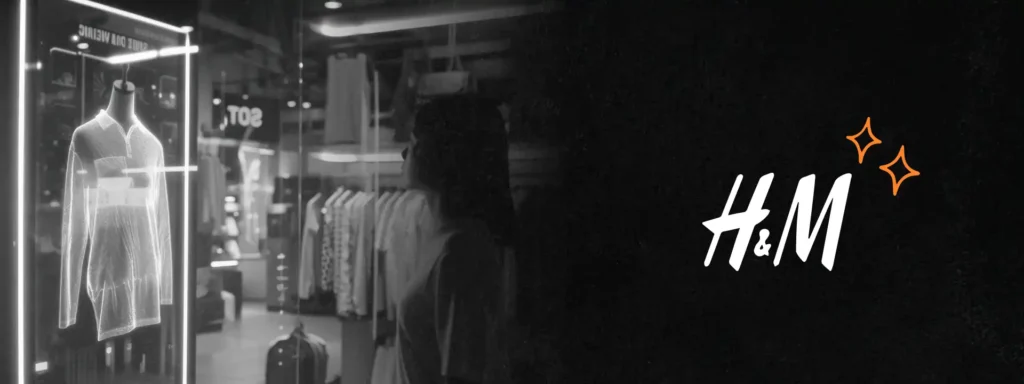
2. ASOS – Personalized Recommendations and Virtual Styling
ASOS integrates machine learning and computer vision to provide highly tailored product suggestions. Through its AI-powered “Fit Assistant,” customers receive size and fit advice based on previous purchases and returns. This personalization has reduced return rates and increased customer satisfaction.
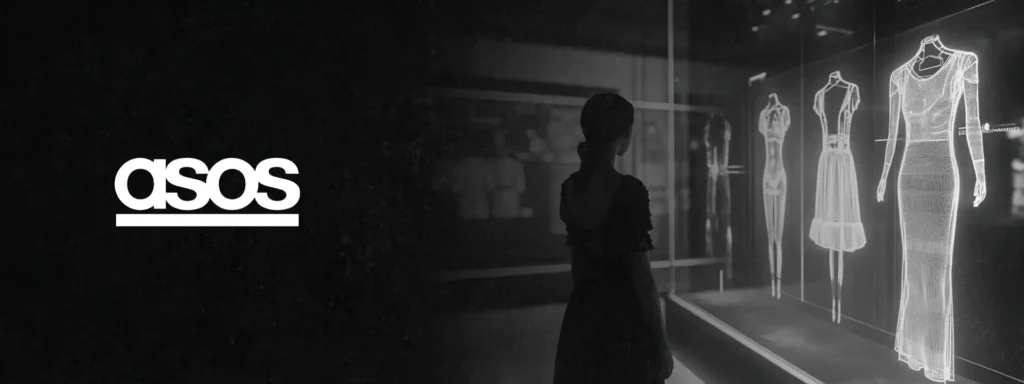
3. Zalando – AI-Driven Trend Forecasting
Zalando leverages AI to analyze millions of data points from social media, search behavior, and market performance to predict upcoming fashion trends. The insights guide both internal design teams and brand partners, enabling them to plan collections and marketing campaigns based on data-driven predictions.
These examples demonstrate that AI is no longer an experiment – it has become a core strategic asset for leading fashion retailers, shaping everything from supply chains to customer experiences.
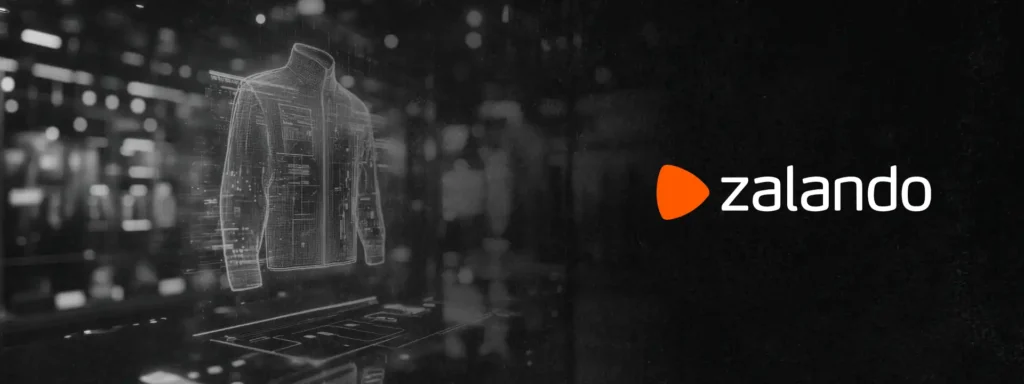
From Inspiration to Implementation: Key Types of AI Solutions in Fashion eCommerce
While global leaders like H&M and Zalando have shown what’s possible, the truth is that AI in fashion eCommerce is no longer limited to big brands with massive budgets. Thanks to modern plugins, APIs, and cloud integrations, even small and mid-sized fashion retailers can now use the same technologies – directly within their existing Magento, Shopware, or Shopify stores.
AI solutions in fashion typically fall into four core categories: personalization, visual recognition, customer support, and marketing automation. Each one solves a specific pain point in the customer journey, from helping shoppers find the perfect outfit to optimizing the brand’s content and engagement strategy.
Let’s explore the most impactful types of AI solutions for fashion eCommerce and the tools that bring them to life.
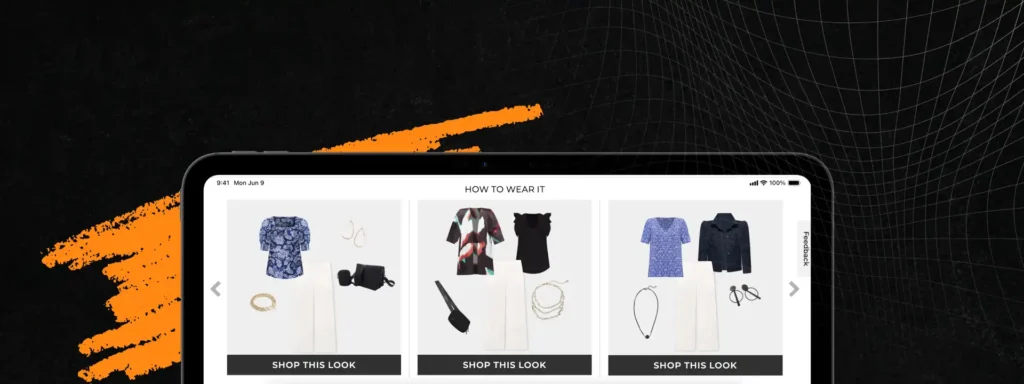
1. Personalized Shopping Experience
Personalization sits at the core of modern fashion retail. Shoppers expect brands to know their preferences – style, color, size – and make relevant suggestions instantly. AI turns this expectation into reality by analyzing browsing history, purchase intent, and behavioral patterns to deliver personalized product recommendations in real-time.
Best tools for personalization:
- Nosto – a personalization engine for fashion eCommerce that adapts product feeds, category layouts, and content based on user behavior.
- Algolia Recommend – semantic and behavioral search that helps customers find what they want, even with vague or incomplete queries.
- Vue.ai – a deep-learning solution that understands style attributes and recommends visually compatible items (“Complete the Look”).
- Shopware AI plugins – modules enabling automated recommendations, dynamic content blocks, and customer segmentation built right into the platform.
Impact: higher conversion rates, more relevant user journeys, and a sense of human-like understanding in digital shopping.
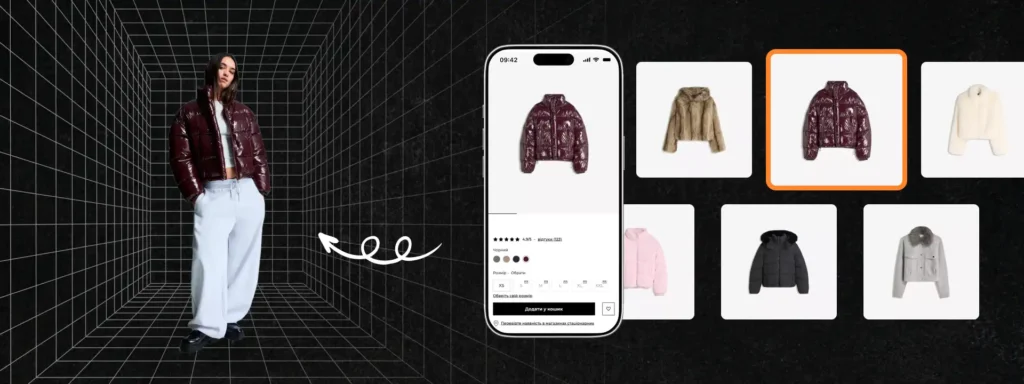
2. Visual Search & Virtual Try-On
Fashion is inherently visual – people buy what they see. AI-powered visual search lets users upload photos or screenshots and find similar products instantly, while virtual try-on features (using AR and 3D modeling) help shoppers visualize how clothes or accessories look on them.
Leading technologies:
- Syte – provides advanced image recognition and “shop the look” functionality tailored for fashion retailers.
- ViSenze – offers visual similarity matching and real-time product tagging to make discovery faster and more accurate.
- Shopware “Find Similar” extensions – allow customers to discover visually related products directly on PDPs or listings.
- AR/try-on integrations – compatible with Shopify AR, Snapchat Lens, or custom Shopware modules for 3D visualization.
Impact: smoother discovery, fewer returns, and a significantly improved user experience that feels like in-store browsing.

3. AI for Customer Support & Retention
Customer support in fashion retail often faces repetitive queries, such as shipping, returns, and sizing. AI automates these interactions without losing a personal touch. Intelligent chatbots and AI agents learn from historical data to resolve issues instantly and proactively engage returning customers.
Top AI solutions:
- Gorgias AI Agent – automates 60–80% of customer service requests via chat or email, integrating natively with Magento, Shopify, and Shopware.
- Ada – a conversational AI platform that delivers multilingual support with seamless hand-off to human agents.
- Rep AI – turns product pages into interactive conversations that guide shoppers and help recover abandoned carts.
Impact: 24/7 customer assistance, reduced support costs, and increased customer lifetime value through faster, personalized responses.

4. AI in Marketing & Content Creation
Marketing teams in fashion eCommerce constantly need fresh product descriptions, ad copy, and visuals. AI tools now assist in generating creative, on-brand content and optimizing it for SEO or ad performance.
Notable tools:
- Jasper AI – creates high-quality, brand-consistent product texts, email campaigns, and blog posts.
- Anyword – predicts how different versions of copy will perform, helping optimize CTAs and headlines for conversions.
- Glowtify – designed for Shopify and eCommerce stores, offering AI-driven marketing suggestions and visual templates.
- Amasty AI-enhanced extensions – automate SEO, cross-selling, and content personalization for Magento stores.
Impact: faster content creation, consistent tone of voice, and data-driven campaigns that adapt to audience behavior.

Ready to bring AI into your fashion store?
Book a free AI consultation with our experts and discover how AI can boost conversions, automate workflows, and make your customer experience unforgettable.
Implementation Roadmap: How to Start Integrating AI
Implementing AI in fashion eCommerce isn’t about replacing people – it’s about empowering your business to make smarter, faster decisions. However, to make AI truly work for your brand, you need a structured roadmap rather than adopting tools randomly.
1. Start with a Deep eCommerce Audit
Every successful AI transformation begins with understanding your current ecosystem. Review your data – including product information, customer behavior, and marketing analytics – and identify where automation can bring the most significant ROI. This step helps identify gaps and determine which AI category (personalization, visual search, support, or marketing) should be prioritized first.
2. Define Measurable Goals
What’s your priority – improving conversions, reducing returns, or enhancing customer loyalty? Setting specific targets makes it easier to select the right tools and measure progress. For example, AI-driven personalization can increase AOV by 15–25%, while automated customer support cuts response times by 60–80%.
3. Choose Scalable and Platform-Compatible Solutions
Fashion brands working on Shopware, Magento, or Shopify can start small – adding AI-powered modules such as Nosto, Algolia, Gorgias, or Jasper – and then scale up with custom integrations. Our team at IT Delight helps retailers integrate these tools into a cohesive ecosystem that aligns with their platform architecture and business model.
4. Test, Train, and Iterate
AI performs best when continuously optimized. Launch one feature at a time, monitor KPIs, and let data guide improvements. Even minor tweaks in recommendation logic or chatbot tone can deliver measurable growth.
5. Get Expert Guidance
Working with an experienced partner ensures faster results and fewer integration pitfalls. IT Delight’s AI Integration Advisory Service helps eCommerce brands identify the most relevant AI tools, create a clear implementation roadmap, and connect them with existing systems without disrupting daily operations.
Conclusion
Artificial intelligence is no longer a luxury for fashion brands – it’s the foundation of how modern eCommerce works. From personalized recommendations and visual search to automated support and AI-driven content, these tools enable retailers to create shopping experiences that feel natural, intuitive, and truly customer-centric – the result: improved engagement, reduced returns, and measurable revenue growth.
If your store is ready to take the next step, now is the perfect time to start. At IT Delight, we help fashion retailers integrate AI strategically – from choosing the right tools to full implementation and optimization.
Let’s make your eCommerce store smarter – together.
